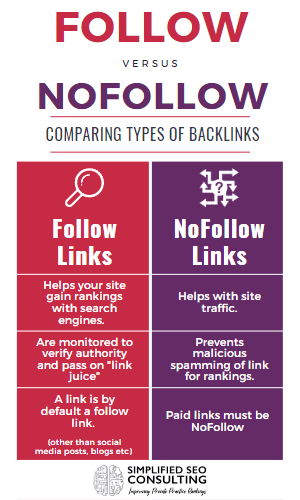In the world of healthcare, providers often dedicate their careers to helping people who are in pain, seeking relief, or longing for better health. The idea of marketing and search engine optimization (SEO) might seem far removed from the compassionate care provided by therapists, counselors, doctors, and other healthcare professionals. However, the truth is that marketing, particularly SEO, is how we can effectively reach the people who are in need of our help.
The Digital Age and Healthcare
In an era dominated by technology, the way people seek medical information and healthcare services has drastically changed. Gone are the days when patients solely relied on recommendations from friends or the local Yellow Pages to find healthcare providers. Nowadays, a significant number of people turn to the internet, and more specifically to search engines like Google, to find answers to their health-related questions. And, they look to Google to find healthcare providers.
Visibility Matters
Imagine you’re a healthcare provider like a psychiatrist or a mental health therapist with a specialization in treating anxiety disorders. Someone in your local community is desperately searching for guidance on managing their anxiety, and they turn to a search engine for answers. Now, think about what would happen if your practice appeared on the first page of search results. The likelihood of that person clicking on your website and reaching out for help increases significantly.
This is how we started Simplified SEO Consulting. The founder and CEO of Simplified SEO Consulting is a therapist herself who owns a medium-sized group psychotherapy practice. She found that she quickly grew from having a one-person solo counseling practice to having a very full group practice just by getting to the top of Google. And, she realized that when her private practice website was at the top of Google, the people calling were no longer just calling to meet with her. Now, they were calling to get into Aspire Counseling. Now, they were happy to meet with any of the amazing, qualified mental health professionals she had hired.
That is when she realized: visibility online matters. People are looking for healthcare providers online. And getting in front of people online can help build their trust in your practice as a whole.
Reaching the Right Audience
Here’s where SEO comes into play. By strategically optimizing your website’s content for relevant keywords and phrases, you increase the chances of your website showing up in search results when potential patients are looking for services you offer. This targeted approach ensures that you’re connecting with the right audience – those actively seeking the solutions you provide.
And from day one, our focus has always been on helping you get in front of the right audience. We spend a lot of time communicating with you about the services you provide and what kind of clients/patients you serve. We want to make sure we understand who you want to reach. Where do they live? What pain points are they expressing? What conditions are you treating? We even want to know what their interests and hobbies might be. And then we use all of that information to do extensive keyword research and make sure we’re really going to show up for the right terms and appeal to the right clients.
Honestly, we are not interested in getting your website in front of endless people. We want to get you in front of the right people. The ones your business can truly help.
Building Trust and Authority
When patients search online for healthcare services, they’re not just looking for a quick fix; they’re searching for trustworthy professionals who can address their concerns. A well-optimized website with informative and well-structured content can help establish your practice’s credibility and authority in your field. Moreover, by incorporating authoritative backlinks and consistency, you further enhance your reputation.
Local SEO and Healthcare
For healthcare practices with a physical presence, local SEO is an invaluable tool. Consider this: a potential patient in your city is searching for a “pediatrician near me.” If you are a pediatrician and your practice’s website is optimized for local search, there’s a good chance that your information will appear at the top of the results, making it easy for them to find you.
Increasing Patient Engagement
In the digital age, patients are more proactive about their health than ever before. They seek information, ask questions, and expect transparency from healthcare providers. By maintaining an active online presence through engaging content, you’re not only addressing patients’ queries but also keeping them informed and connected to your practice.
Competing in the Evolving Digital Landscape
As the healthcare field evolves, so do the marketing strategies employed by professionals. With more practices recognizing the importance of SEO, the online competition has intensified. SEO is about more than adding a few healthcare SEO keywords into your copy. It now requires a pretty comprehensive approach to getting your website out there. And, it’s essential to adapt to modern marketing techniques to stand out and make your practice discoverable to those who need your expertise.

SEO is no longer about choosing a few random healthcare SEO keywords to add to your page and you’re good to go. In fact, even the process of choosing keywords for health and wellness has gotten more complicated. So yes, SEO might still with identifying some of the most searched health keywords on Google, narrowing that down to the ones actually relevant to your practice (what would YOUR ideal patients be searching), examining how difficult each one is to rank for, and making a keyword list based on that research. But then using that list to inform a truly effective SEO strategy? That is getting a bit more complicated with each passing year, each core algorithm update on Google, and each new medical practice website that is published on the web.
Navigating Healthcare Regulations
While healthcare professionals operate within a regulated environment, this doesn’t mean marketing is off-limits. It’s crucial to align your marketing efforts with ethical guidelines. Adhering to these guidelines ensures that you’re providing accurate information while respecting patient privacy and the ethical standards of the industry.
This means always respecting HIPAA for example. But for many of the private practices we work with, there are additional regulations, codes of ethics, and considerations. For example, many mental health professionals have codes of ethics with much more strict considerations than just HIPAA. Many mental health therapists can’t ask clients for Google Business Profile reviews whereas some other healthcare providers can. All of these things can impact your SEO strategy and need to be considered when you’re choosing how to optimize your website.
The good news is that there are a LOT of different ways to optimize a website. And a comprehensive strategy that will stand the test of time will target several different SEO ranking factors. But if a specific healthcare regulation or ethical principle means that you need to optimize something a little differently than another type of business would, that’s ok. There are plenty of different ways to optimize a website that can still be very effective.
Aligning with Patients’ Needs
SEO isn’t just about ranking higher in search results; it’s about delivering valuable information to patients. By creating content that addresses patients’ concerns and needs, you’re providing them with the information they’re actively seeking. This alignment fosters trust and enhances their overall patient experience.
This is where I like to point out that Google isn’t your enemy. In fact, for the most part, it shares the same goal you do: to share your website with the people who are actually looking for your website. And it does that by trying to show people who are searching the websites that they’ll find most useful. So, if you’re thinking about your ideal client and creating content that will really meet their needs that’s the first step.
Maximizing Online Presence
The goal of SEO isn’t solely to rank higher; it’s to increase your practice’s online visibility. When you’re easily discoverable across various search engine results, you expand your reach and increase your chances of connecting with patients who can benefit from your services.
Data-Driven Decision Making
One of the perks of digital marketing is the ability to collect data and analyze the results of your efforts. By using SEO analytics, you gain insights into what’s working and what needs improvement. This data-driven approach allows you to refine your strategies and make informed decisions.
At Simplified SEO Consulting, we LOVE data. In fact, our team pulls up a data dashboard every single time we’re working on optimizing a website and all of our clients have 24/7 access to a data dashboard. Data empowers you to make informed decisions when optimizing your website.
Staying Relevant and Up-to-Date
It’s important to note that SEO isn’t a one-time endeavor; it’s an ongoing process. Search engine algorithms evolve, user behaviors change, and staying updated is essential. By adapting to these changes, you ensure that your practice remains relevant and easily discoverable.
However, we’ve found that the most intensive work is typically done in the first 6-12 months. Then, the ongoing work to update your SEO strategy and stay on top of search results is typically a little easier.
Patient Education and Empowerment
Optimizing your content for search engines doesn’t just benefit your practice; it empowers patients. By providing accurate and valuable information, you empower patients to make informed decisions about their health and well-being.
For example, when we’re working on SEO for functional medicine doctors, we’re going to create a lot of relevant content for their website.
The Ethical Approach to SEO
Integrity is paramount in the healthcare field, and it’s no different when it comes to SEO. While the goal is to improve your online presence, it should be done ethically and transparently. Maintaining your professional values while optimizing for search engines enhances your reputation and builds patient trust.
The truth is that we’ve seen a number of healthcare providers burned by SEO companies that advised them to do unethical things or who just took advantage of small business owners. It’s not uncommon for SEO specialists to engage in unethical (sometimes called “black hat”) SEO practices like buying backlinks, hiding keywords, or engaging in link schemes that actually hurt the website’s SEO in the long term. And then there are other times where they simply advise or do unethical things because they don’t understand the uniqueness of the healthcare industry. For instance, telling a social worker to put patient reviews on their website or inserting a sentence stating a primary care physician can cure a chronic illness.
It’s important to consider ethics in all aspects of marketing, including SEO. So, whether doing SEO in-house or outsourcing it, please don’t forget to make ethics an important part of the conversation.
Connecting with Patients in Need
Consider the story of Dr. Johnson, a functional medicine practitioner in Nevada who implemented SEO strategies. Dr. Johnson’s expertise in holistic health was hidden behind pages of search results until he optimized his website. Patients who desperately needed his help found him, resulting in transformed lives and thriving health.
Balancing Patient Care and Marketing
Balancing patient care with marketing efforts can be challenging. However, viewing marketing as a means to reach more patients who need your assistance can help strike that balance. Remember, effective marketing ultimately translates into helping more people lead healthier lives.
Success Stories in Healthcare SEO
Functional medicine practices, like Dr. Johnson’s, have witnessed the positive impact of SEO on their patient reach and engagement. By embracing modern marketing strategies, they’ve been able to connect with individuals seeking alternative healthcare solutions.
So, what is SEO and why is it important today?
SEO is a marketing strategy that empowers you to meet your potential patients where they are searching for medical providers in the 21st century: online. Even if they’re referred by a friend, they’re likely to look you up online. So, it builds trust with a potential patient when they can find you there. SEO is the most consistent long-term way to reach people needing your help and ensure you have a healthy caseload for years to come.
Digital marketing has been around in some form for a while now. But in the last few years, the importance of SEO in digital marketing, particularly in the healthcare industry, has really increased. More and more medical practices are paying attention to search engine marketing (SEM). Google Ads are getting more competitive as you’re now competing with huge companies and we’re hearing more people say that social media advertising isn’t getting them the results they used to see. But there are still great results from people using organic SEO to grow.
Embracing SEO to Reach More Patients/Clients in Your Community
In a field centered around healing and wellness, embracing SEO is a means of extending that care to a broader audience. While your primary goal is to provide quality healthcare services, recognizing the power of SEO enables you to reach those who need your expertise the most. By using SEO strategies, you can build connections, foster trust, and make a lasting impact on the lives of individuals seeking health and healing.
When your ideal client is stressed out and looking for a new medical provider on Google, you need to be at the top of those search results. To do that, you are looking to outsource to a marketing agency that understands SEO for the healthcare industry. More specifically, the digital marketers who understand SEO for medical practices and appreciate the unique work functional medicine doctors offer.
That’s where Simplified SEO Consulting comes in. We’re not like other SEO agencies. We were founded by a private practice owner in the mental health field and are committed to helping small businesses within the healthcare industry. Our team of SEO specialists will simplify the SEO process by walking you step by step through what it takes to get your practice ranking. We understand the important points of SEO. Just as importantly though, we value and appreciate the work you do and will be committed to helping you help more patients. We specialize in working with healthcare practices and we have a special heart for SEO for functional medicine doctors, psychiatrists, and others who recognize the interplay of mental health and physical health. Start today by reaching out and scheduling a consultation with one of our incredible SEO specialists.










 Keyword Research
Keyword Research About Jessica
About Jessica Steps to Consider When Creating a Technically Sound Foundation for SEO
Steps to Consider When Creating a Technically Sound Foundation for SEO








 Neglecting the importance of local SEO
Neglecting the importance of local SEO
 About the Author:
About the Author: